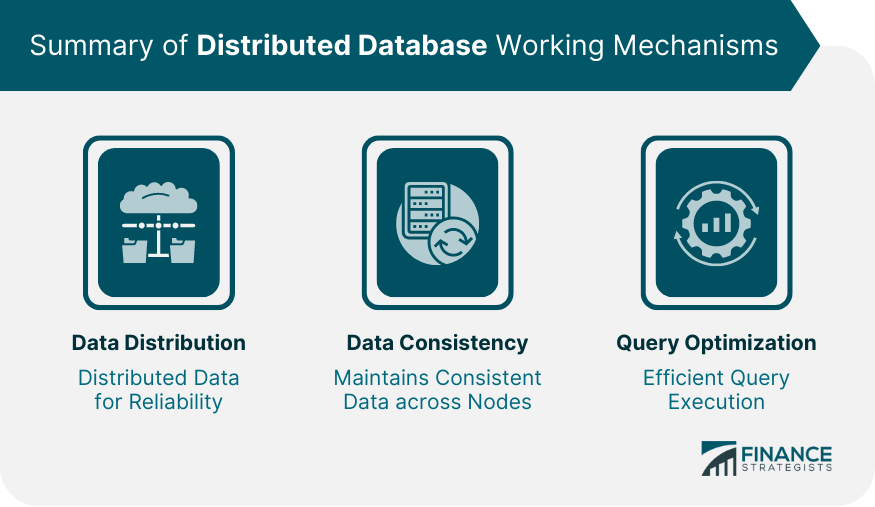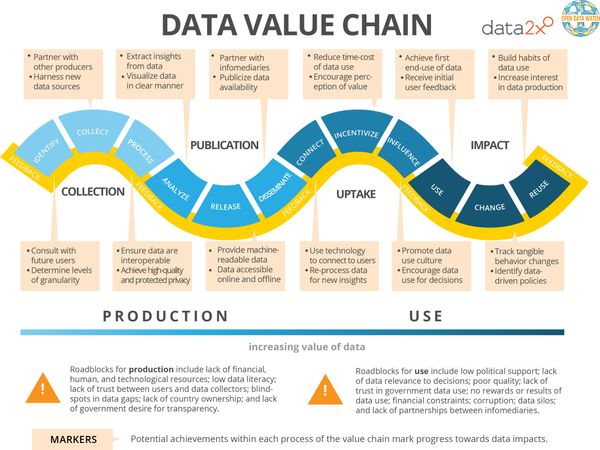Overview
The Importance of Data and Analytics in Business
Data and analytics play a crucial role in driving business growth and success. In today’s digital age, businesses are generating vast amounts of data from various sources such as customer interactions, transactions, and social media. This data holds valuable insights that can be leveraged to make informed business decisions and drive strategic initiatives. One key aspect of data and analytics is database performance tuning, which involves optimizing the performance of a database system to ensure efficient and effective data processing. By fine-tuning the database, businesses can improve query response times, reduce downtime, and enhance overall system performance. Database performance tuning is essential for businesses that rely heavily on data-driven decision-making and need to extract actionable insights from their data. By investing in data and analytics capabilities, businesses can unlock new growth opportunities, gain a competitive edge, and drive innovation in their industry.
The Role of Data in Decision Making
Data plays a crucial role in decision making for businesses. In today’s digital age, companies have access to vast amounts of data that can provide valuable insights and inform strategic decisions. By analyzing and interpreting this data, businesses can identify patterns, trends, and correlations that may not be apparent through traditional methods. This enables them to make informed decisions that are based on evidence and data-driven insights. Data-driven decision making allows businesses to mitigate risks, identify opportunities, and optimize their operations. It empowers businesses to make more accurate and informed decisions, leading to improved business growth and performance.
The Benefits of Analytics in Business
Analytics plays a crucial role in driving business growth and success. By harnessing the power of data, businesses can gain valuable insights and make informed decisions. One of the key benefits of analytics in business is the ability to track and analyze customer behavior, preferences, and trends. This information can be used to personalize marketing campaigns, improve customer experience, and optimize business processes. Another benefit is the ability to identify and mitigate risks. Analytics can help businesses detect patterns and anomalies in data, allowing them to proactively address potential issues. Furthermore, analytics can also contribute to cost savings and efficiency improvements. By analyzing data, businesses can identify areas of waste and inefficiency, and take steps to streamline operations. Overall, leveraging analytics in business can lead to improved decision-making, enhanced competitiveness, and accelerated growth.
Understanding Data and Analytics

What is Data and Analytics?
Data and analytics play a crucial role in unlocking business growth. They provide organizations with valuable insights and help them make informed decisions. But what exactly is data and analytics? In simple terms, data refers to the information collected and stored in various sources, such as databases, while analytics involves the process of analyzing and interpreting that data to gain meaningful insights. With the advent of technology, organizations now have access to advanced database solutions that enable them to store, manage, and analyze vast amounts of data. These solutions offer features like data integration, data security, and data visualization, empowering businesses to harness the power of data and analytics for driving growth and innovation.
Types of Data and Analytics
Data and analytics play a crucial role in driving business growth. There are various types of data and analytics that organizations can leverage to gain insights and make informed decisions. These include descriptive analytics, which help in understanding past trends and patterns; predictive analytics, which use historical data to forecast future outcomes; and prescriptive analytics, which provide recommendations on the best course of action. Each type of data and analytics has its own unique benefits and applications, and organizations can choose the ones that align with their specific goals and objectives. By harnessing the power of data and analytics, businesses can uncover valuable insights, identify opportunities for improvement, and drive innovation and growth.
Data Collection and Management
Data collection and management are crucial aspects of leveraging data and analytics to unlock business growth. In today’s data-driven world, organizations rely on robust database systems to store and retrieve data efficiently. The database server functions as the backbone of data collection and management, providing the necessary infrastructure for storing, organizing, and processing large volumes of data. With the right database server, businesses can ensure data integrity, security, and accessibility, enabling them to make informed decisions based on accurate and up-to-date information. Effective data collection and management also involve implementing data governance practices, such as data quality assurance and data privacy measures, to maintain the reliability and confidentiality of the collected data. By optimizing data collection and management processes, businesses can harness the power of data and analytics to drive growth, improve operational efficiency, and gain a competitive edge in the market.
Implementing Data and Analytics Strategies

Building a Data-Driven Culture
Building a data-driven culture is essential for businesses to unlock their full potential. By embracing data and analytics, companies can make more informed decisions, identify new opportunities, and drive innovation. A data-driven culture fosters a mindset of curiosity and continuous improvement, where employees are encouraged to explore data, ask questions, and seek insights. It requires leadership support, investment in technology and infrastructure, and a commitment to data literacy. With a strong data-driven culture, organizations can gain a competitive edge, adapt to changing market dynamics, and drive business growth.
Choosing the Right Analytics Tools
Choosing the Right Analytics Tools
When it comes to unlocking business growth with data and analytics, one of the most important factors to consider is the choice of analytics tools. The right tools can make a significant difference in the efficiency and effectiveness of data analysis, enabling organizations to derive valuable insights and make informed decisions. One such tool that plays a crucial role in data analytics is SQL Server performance. SQL Server performance optimization is essential for ensuring smooth and efficient data processing, query execution, and overall system performance. By leveraging the power of SQL Server performance, businesses can enhance their data analysis capabilities and drive business growth. With its robust features and capabilities, SQL Server performance provides the foundation for accurate and timely data analysis, enabling organizations to gain a competitive edge in the market. In conclusion, choosing the right analytics tools, such as SQL Server performance, is vital for unlocking business growth through data and analytics.
Data Governance and Security
Data governance and security are crucial aspects of managing and utilizing data effectively. In today’s data-driven business landscape, organizations need to establish robust data governance frameworks to ensure the accuracy, integrity, and privacy of their data assets. Data governance involves defining policies, procedures, and roles to govern data usage, storage, and access. It also encompasses data quality management, data classification, and data lifecycle management. By implementing effective data governance practices, organizations can mitigate risks, comply with regulations, and maximize the value of their data. In addition to data governance, ensuring data security is paramount to protect sensitive information from unauthorized access, breaches, and cyber threats. Organizations must implement strong security measures such as encryption, access controls, and monitoring systems to safeguard their data. With proper data governance and security measures in place, businesses can confidently leverage data to uncover valuable insights, make informed decisions, and drive business growth.
Driving Business Growth with Data and Analytics

Identifying Market Trends and Opportunities
Identifying Market Trends and Opportunities
Market trends and opportunities are crucial for businesses looking to unlock growth and stay competitive. By leveraging data analytics, businesses can gain valuable insights into consumer behavior, market dynamics, and emerging trends. Data analytics allows businesses to analyze large volumes of data and identify patterns and correlations that can be used to make informed decisions. With the help of data analytics, businesses can identify market trends and opportunities, such as changes in consumer preferences, emerging markets, and new product or service offerings. By staying ahead of market trends and capitalizing on opportunities, businesses can position themselves for growth and success.
Optimizing Operations and Processes
Optimizing operations and processes is crucial for unlocking business growth. One key aspect of optimization is having a reliable database system. A reliable database system ensures that data is stored and accessed efficiently, minimizing downtime and maximizing productivity. With a reliable database system in place, businesses can streamline their operations, improve decision-making processes, and enhance overall efficiency. By leveraging data and analytics, businesses can identify bottlenecks, optimize workflows, and make data-driven decisions that drive growth and success.
Personalizing Customer Experiences
Personalizing customer experiences is a crucial aspect of unlocking business growth with data and analytics. By understanding the unique needs and preferences of each customer, businesses can tailor their products and services to provide personalized experiences that drive customer satisfaction and loyalty. One key strategy to achieve this personalization is through SQL performance tuning. SQL performance tuning strategies involve optimizing the performance of SQL queries to improve database performance and ensure faster data retrieval. By implementing effective SQL performance tuning strategies, businesses can enhance the speed and efficiency of their data processing, enabling them to deliver real-time, personalized experiences to their customers. With these strategies in place, businesses can leverage data and analytics to create meaningful connections with their customers and drive business growth.
Challenges and Considerations

Data Quality and Accuracy
Data quality and accuracy are essential for any business that wants to leverage data and analytics for growth. Without reliable and accurate data, businesses may make incorrect decisions or draw inaccurate conclusions. To ensure data quality and accuracy, organizations need to invest in performance tuning. Performance tuning involves optimizing the performance of data systems and processes to improve efficiency and accuracy. By fine-tuning data systems, businesses can enhance the quality and accuracy of the data they collect, analyze, and use for decision-making. This leads to more reliable insights and better-informed business strategies.
Privacy and Ethical Concerns
Privacy and ethical concerns are important considerations when it comes to unlocking business growth with data and analytics. In today’s digital age, where vast amounts of data are collected and analyzed, it is crucial to prioritize the protection of personal information and ensure ethical practices are followed. Organizations must establish robust privacy policies and adhere to relevant regulations to safeguard customer data and maintain trust. Additionally, it is essential to implement data anonymization techniques and employ secure data storage and transmission methods to prevent unauthorized access or breaches. By addressing privacy and ethical concerns, businesses can build a foundation of trust and credibility, enabling them to leverage the power of data and analytics for sustainable growth.
Skills and Talent Acquisition
In today’s data-driven world, acquiring the right skills and talent is crucial for unlocking business growth. With the rapid advancements in data and analytics, companies need professionals who can effectively harness the power of data to drive strategic decision-making and gain a competitive edge. The ability to analyze and interpret data, develop data-driven strategies, and implement data-driven solutions has become a key requirement for businesses across industries. By investing in skills and talent acquisition in the field of data and analytics, organizations can position themselves for success in the digital age.
Conclusion

The Future of Data and Analytics in Business
Data and analytics have become essential components of modern business operations. As technology continues to advance, the future of data and analytics in business looks promising. With the ability to collect, analyze, and interpret vast amounts of data, businesses can gain valuable insights into customer behavior, market trends, and operational efficiency. These insights can drive informed decision-making and help businesses unlock new growth opportunities. By leveraging data and analytics, businesses can optimize processes, improve products and services, and enhance customer experiences. The future of data and analytics in business is not just about harnessing the power of data, but also about leveraging advanced technologies such as artificial intelligence and machine learning to extract meaningful insights from complex data sets. As businesses continue to embrace digital transformation, data and analytics will play a crucial role in driving innovation and competitive advantage.
Key Takeaways
Data and analytics play a crucial role in unlocking business growth. By harnessing the power of data, companies can gain valuable insights and make informed decisions. With the help of analytics, businesses can identify trends, patterns, and opportunities that can drive innovation and improve performance. The key takeaways from this article are the importance of data-driven decision making, the role of analytics in business growth, and the potential for innovation through data and analytics.
Next Steps for Implementing Data and Analytics
After understanding the benefits of data and analytics, the next steps for implementing these strategies are crucial. One key aspect to consider is the utilization of relational databases. Relational databases provide a structured and organized approach to storing and managing data, allowing businesses to efficiently access and analyze information. By implementing relational databases, organizations can enhance data integrity, improve data quality, and enable seamless integration with various data sources. Additionally, relational databases offer robust security features to protect sensitive information. To further maximize the potential of data and analytics, businesses should also explore advanced analytics tools and techniques, such as machine learning and predictive modeling. These technologies can uncover valuable insights and patterns from large datasets, enabling data-driven decision making and driving business growth.
In conclusion, OptimizDBA Database Optimization Consulting is the trusted industry leader in remote DBA services. With over 500 clients and a track record of delivering transaction speeds that are at least twice as fast as before, we guarantee a significant increase in performance. Our average speeds are often 100 times, 1000 times, or even higher! If you’re looking to optimize your database and experience unparalleled performance, contact OptimizDBA today. Visit our website to learn more about our services and how we can help you achieve optimal database performance.







